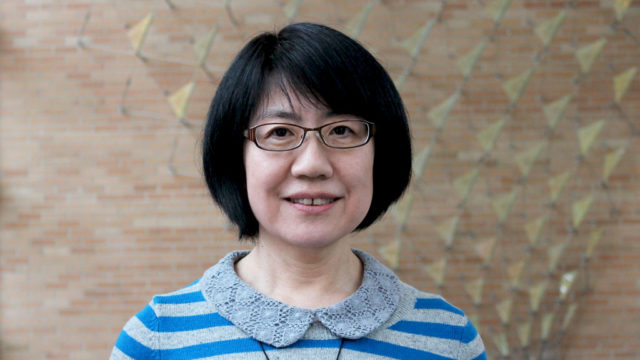
For Jun Dai, assistant professor in the Pharmaceutical Sciences Division, her early research in cell biology laid the groundwork and proved pivotal for the transition and current focus on skin diseases. Fast forward and practically speaking she was able to translate the cell biology to an applied field—the human system.
“Skin provides a solid experimental system to understand fundamental knowledge,” said Dai. From her early career with Professor Steven Hill at Tulane in the Department of Cellular Biology to her postdoctoral work at Brigham Women’s Hospital and Cutaneous Biology Research Center in Massachusetts General Hospital, Dai found that her parallel research tracks would not only allow a deeper understanding, but eventually prove to support the practical application of her work.
Whether treating inflammatory skin diseases or skin cancer, the practical application is Dai’s passion as she describes in detail how her early research on melatonin and an inhibitor effect on breast cancer to post doctoral work discovering the existence of the novel protein kinase haspin expressed in all proliferative cells and critical for function and mitosis progression. These diverse research areas have allowed her to think of and approach the science from different points of view and she finds great satisfaction in the exploration to do new things—celebrating breakthroughs between the disciplines—big or small. Dai readily shares the importance of drawing on both the biology and chemistry to explore the functions and mechanisms of the mitotic kinase haspin in control of cell cycle progression and the antitumor potential of its inhibitors and the impact of exploring the role of haspin in cancer development and the therapeutic potential of haspin inhibitors in treating different types of skin cancer.
Dai joined the School of Pharmacy in January as an assistant professor in the Pharmaceutical Sciences Division. She received her BS in Biochemistry from Nankai University in 1990 and a PhD in Anatomy from Tulane University. She did her postdoctoral work in the Rheumatology, Allergy, and Immunology Division in Brigham Women’s Hospital and Cutaneous Biology Research Center in Massachusetts General Hospital. She held a faculty appointment as an instructor in Harvard Medical School between 2005 and 2016. She is the recipient of an NIH K01 Career Development Award. Dai was an associate professor at Tianjin University in 2014.
When not in the lab or classroom, Dai enjoys watching movies, running, and football.